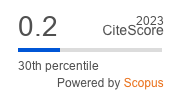Can a Good Citizen be a Good Ruler? An Answer from Aristotle’s Politics
Parole chiave:
Ancient political philosophy, Aristotle’s Politics, Common good, Ethics, The good citizenAbstract
This paper aims to explore both the nature and the purposes of the Aristotelian distinction between the ‘good man’ and the ‘good citizen’ outlined in Book iii of the Politics. Unlike the excellence of the good citizen, affected by the quality of his city, the excellence of the good ruler, which Aristotle identifies with that of the good man, rests on an absolute standard : the possession of practical wisdom. I shall argue that Aristotle’s argument, rather than stressing the impossibility of a city being entirely constituted of morally excellent men, is ultimately designed to show that, in the case of the ideal city, all the citizens of the ideal polis are at the same time potentially virtuous rulers. The defence of this thesis involves critical engagement with those scholars who deny the possibility of the two excellences coexisting in one and the same individual.



